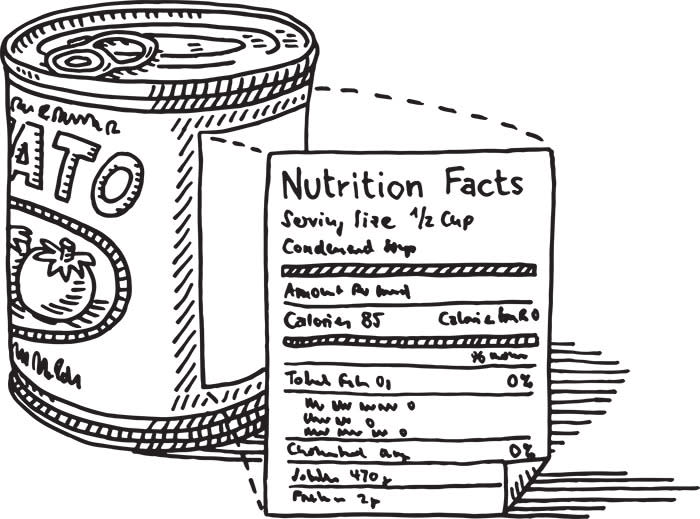Campbell Announces Voluntary GMO Labeling

All the Campbell brands will have new labels. (Photo: Getty Images)
A big change is coming to Campbell labels. The company, which owns brands like Pepperidge Farm, Plum Organics, V8, and Prego, will begin disclosing the presence of genetically modified ingredients (GMOs) in its products — a first for a major U.S. food manufacturer.
Campbell also said in a press release issued Thursday that it’s calling on the government to create a mandatory, uniform labeling system to help consumers identify products that contain GMO ingredients.
The move is interesting given that many Campbell products contain foods that are often genetically modified, like corn, canola, soybeans, and sugar beets. Denise Morrison, chief executive of Campbell told the New York Times in a new interview that three-quarters of the company’s products contain ingredients derived from those foods.
Related: Chipotle Has Gone GMO-Free. How Much Should We Care?
The new label doesn’t provide a lot of information or details about which ingredients are GMO. Instead, it says this below the ingredients list: “Partially produced with genetic engineering. For more information about G.M.O. ingredients, visit WhatsinMyFood.com.” Once consumers visit the website, they’ll need to click on the product in question and scroll down to see the GMO ingredients in the product.
Currently, only Campbell’s soup products are listed on the site, and all say they contain GMOs, with the exception of Campbell’s organic soups.
Is this going to make an impact with consumers? GMO expert Sheldon Krimsky, a professor at Tufts University and chairman of the Council for Responsible Genetics, isn’t sure.
Related: Corporations Are Promising to Share GMO Information. But Is It Enough?
“The primary concern among many individuals is that foreign proteins will be put in the food without mandatory testing to see whether it’s safe for human consumption,” he tells Yahoo Health. “But if you just say that this has some GMO in it, it could mean so many things.”
While Krimsky says the label doesn’t tell consumers much, he also points out that GMOs are pretty black and white to most people: “Is this GMO or non-GMO? That’s all they care about.”
However, Krimsky says that mindset is often not useful either, since not all methods of genetic modification are created equal — and some are considered safer than others.
Related: How to Know If Your Foods Contain GMOs
Charlie Arnot, CEO of the Center for Food Integrity, tells Yahoo Health that he applauds the move. “This is a great move by Campbell’s,” he says. “Anything that increases consumer transparency increases consumer trust.”
Arnot doesn’t blame Campbell’s for the vagueness of the label, noting that big companies like them buy ingredients from many sources and often may not know whether they’re GMO or not. “It puts people creating the labels in a bind,” he says. “Some of the ingredients may be genetically modified, and some may not. That’s just the best they can do.”
As for how the new label will impact sales, Krimsky thinks its ambiguity may turn some people off and scare others away, while others simply may not care — or notice — at all.
Will other companies follow? Krimsky expects Campbell’s competition will closely monitor what happens to the company’s sales after the labels roll out. If sales go up, they may all adopt a similar label.
The new labels are expected to roll out in 12 to 18 months.
When we reached out to Campbell’s, they directed us to this statement.
Let’s keep in touch! Follow Yahoo Health on Facebook, Twitter, Instagram, and Pinterest.

